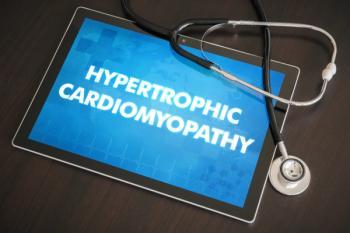
Medicare Could Save with Use of Generic Cardiovascular Meds
Researchers suggest that adjusting the prescribing patterns of about 8% of physicians could result in substantial savings.
Switching to generic medications for heart and blood vessel diseases could save the Medicare Part D prescription program more than $600 million per year, including about $135 million in costs to patients, according to
“Increasing the use of generic medications would decrease patient out-of-pocket costs and make medications more affordable, which may, in turn, improve adherence rates and reduce the financial burden of medication therapy,” senior study author Alexander Sandhu, M.D., instructor of medicine at Stanford University School of Medicine in Stanford, California, said in a
Investigators compared prescription-filling patterns between brand-name vs. generic medications that prevent or treat irregular heart rhythms, blood clotting, high blood pressure and high cholesterol. Using nationwide records from Medicare Part D prescription coverage, researchers reviewed prescriptions filled in 2017 for cardiovascular medications that are available in both generic and brand-name formulas.
They identified 169 cardiovascular drugs purchased using Medicare Part D in 2017, resulting in aggregate spending of $22.9 billion for about 929 million monthly prescriptions. After adjusting for rebates, estimated total spending was $19.1 billion. This included $4.2 billion in cost-sharing by Medicare beneficiaries.
Of the $11 billion that was spent on therapies where both generic and brand names were available, $2.3 billion (21.2%) was on brand-name drugs. After accounting for rebates, $1.7 billion of a total $10.4 billion (16.1%) was spent on brand-name drugs with generic substitutes
Although only 2.4% (or $20 million) of prescriptions filled were for the brand-name medications, they accounted for more than 21% of total Medicare Part D prescription spending.
Most of the savings came from lipid-lowering therapies (70.0%) or antihypertensives (20.9%).
“Even after controlling for cash rebates available for some of the brand-name medications, the researchers estimate increased use of generic substitutions in Medicare Part D could save $641 million per year, including $135 million of costs directly paid by patients,” investigators wrote.
One limitation, investigators said, was that the analysis was limited to the impact of substitution for the generic equivalent of a drug and did not include generic substitution for different generic drugs within the same therapeutic class.
“Our study finds that changing the prescribing patterns of a small number of physicians who prescribe higher rates of brand-name cardiovascular medications than their peers would result in substantial cost savings. Although our analysis was limited to cardiovascular medications, the findings would likely be similar when expanded to other medication classes,” investigators wrote.
Newsletter
Get the latest industry news, event updates, and more from Managed healthcare Executive.























